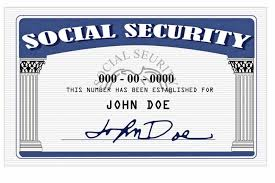
FICA stands for “Federal Insurance Contributions Act.” This is the law that funds both Social Security and Medicare through payroll taxes. Churches share this cost with their employees.
Your FICA contributions earn Social Security credits. For 2016, you need to make $1,260 in wages to earn one credit. You can earn up to four credits a year. Most of today’s workers need at least 40 credits to apply for retirement benefits. That’s ten years of work.
Social Security also pays benefits to workers who become severely disabled, and to survivors when a worker dies. The number of credits you need to qualify for these benefits depends on your age when you become disabled or die.
You can get Social Security retirement benefits as early as age 62. If you retire before your full retirement age, your benefit will be smaller. Your benefit will be highest if you put off retirement until you’re 70.
Your FICA contributions also pay for Medicare hospital insurance. Medicare is the country’s health insurance program for people age 65 or older. People younger than 65 with certain disabilities or permanent kidney failure can also qualify for Medicare.
Social Security covers an estimated 165 million workers. The program pays benefits to about 40 million retired workers, 9 million workers with disabilities, and 6 million survivors of workers who have died. It also helps about 5 million dependent family members.
The equivalent law for clergy and other self-employed workers is the “Self-Employment Contributions Act,” or SECA. If you’re a dual status clergy or self-employed, you pay both worker and employer contributions toward Social Security and Medicare.
< Back
Clergy Financial Resources serves as a resource for clients to help analyze the complexity of clergy tax law, church payroll & HR issues. Our professionals are committed to helping clients stay informed about tax news, developments and trends in various specialty areas.
This article is intended to provide readers with guidance in tax matters. The article does not constitute, and should not be treated as professional advice regarding the use of any particular tax technique. Every effort has been made to assure the accuracy of the information. Clergy Financial Resources and the author do not assume responsibility for any individual’s reliance upon the information provided in the article. Readers should independently verify all information before applying it to a particular fact situation, and should independently determine the impact of any particular tax planning technique. If you are seeking legal advice, you are encouraged to consult an attorney.
For more information or if you need additional assistance, please use the contact information below.
Clergy Financial Resources
11214 86th Avenue N.
Maple Grove, MN 55369
Tel: (888) 421-0101
Fax: (888) 876-5101
Email: clientservices@clergyfinancial.com
